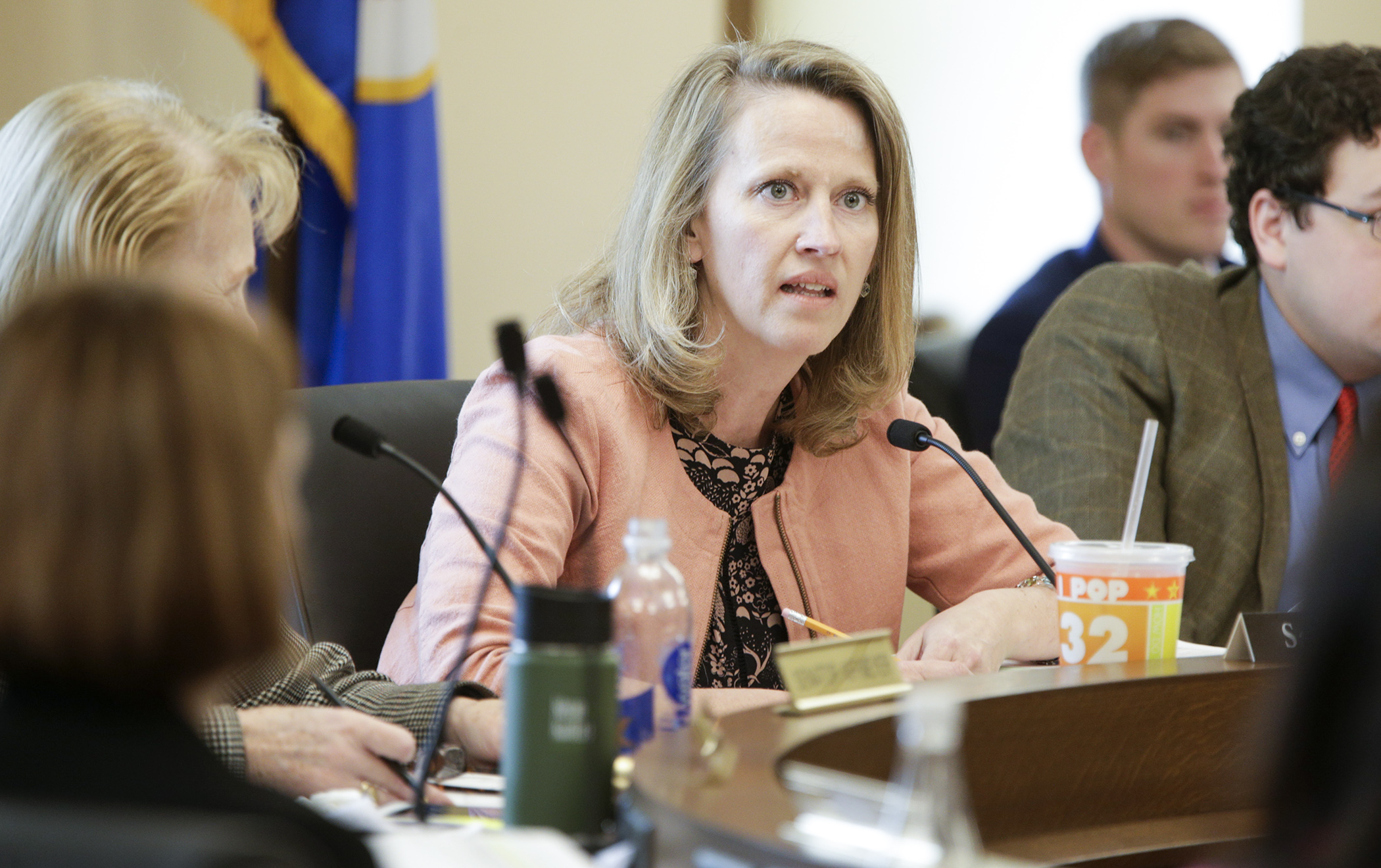Administration officials decry amended state government omnibus bill

A conference committee agreed to a $973 million plan to fund constitutional offices, most executive branch agencies and legislative offices, but stopped short of finalizing the proposal as they await a response from Gov. Mark Dayton, whose budget recommendation is $195 million more than what Republicans approved Tuesday.
On a divided voice vote, conferees voted to amend HF691/SF605*, the omnibus state government finance bill, after senators and representatives cleared up differences in the two chambers’ version of the bill. The House initially proposed a two-year $943 million budget, while the Senate pitched a $1 billion spending plan for the 2018-19 biennium.
MORE View the spreadsheet
Officials with the Dayton administration piled on the complaints and concerns during Tuesday’s hearing, saying the spending reductions will result in mass employee layoffs and put government services at risk.
“If we’re going to go forward and work in a dialogue, where we agree to talk about issues that we can both engage in – both the Legislature and the governor – I don’t see much hope with this particular report gaining much traction with the governor,” Minnesota Management and Budget Commissioner Myron Frans said.
Rep. Sarah Anderson (R-Plymouth), who co-chairs the conference committee with Sen. Mary Kiffmeyer (R-Big Lake), said Dayton’s budget proposal was too expensive, increasing MMB’s budget by 78 percent.
“I don’t think there’s anyone in the state of Minnesota who is expecting that their budget is going to increase by 78 percent. I certainly don’t think that about state government — that state government would increase by 78 percent,” Anderson said. “So we’re just here to try and rein things in and make sure we are protecting the taxpayers of Minnesota.”
More with less
Hit hardest among the proposed spending reductions is the Department of Revenue and a $12.6 million cut to operating expenses. Commissioner Cynthia Bauerly said her department is staff-heavy, providing tax help and processing returns, and the spending reductions would cost about 200 people their jobs.
The bill, she said, requires the department to do more with less.
“We simply cannot afford the appropriation reduction and meet the requirements of this bill or the services we want to provide to Minnesotans,” Bauerly said.
Some spending reductions in the committee’s bill include:
- eliminating the public subsidy program for campaigns, a savings of $2.67 million in the next two biennia;
- an $11.16 million reduction in MMB’s operating expenses;
- cutting the Department of Human Rights by $416,000; Dayton proposed a $3.29 million increase; and
- canceling the designated $7.16 million for the James Metzen Mighty Ducks Program back into the General Fund.
At least six times, State Auditor Rebecca Otto called the proposal “unconstitutional” because it doesn’t fund the office at previous levels. A $698,000 reduction in operating expenses, Otto said, would devastate her office’s work.
“In terms of being a good government state – we can kiss that goodbye,” Otto said.
But Republican lawmakers contend the proposal is cleaning house. Rep. Jim Nash (R-Waconia) told Otto her office shouldn’t be using pension-related funds to cover her lawsuit against three counties over a 2015 law.
Prioritizing consolidation and veterans
When the House passed its version of the bill, Anderson touted the measure as one that streamlines state government while prioritizing veterans.
The amendment approved Tuesday puts away $10 million for a new veterans’ home and would spend $700,000 on the Veterans’ Journey Home program, along with increasing military affairs spending by $6 million for tuition reimbursement and retention bonuses. Although the Senate initially included spending $1 million for the new Duluth veterans’ cemetery, the conference agreement didn’t include it.
Also included are a one-time $1.5 million expenditure for the Minnesota Historical Society’s digital preservation project and an ongoing $800,000 expenses to establish a legislative budget office.
Related Articles
Search Session Daily
Advanced Search OptionsPriority Dailies
Ways and Means Committee OKs proposed $512 million supplemental budget on party-line vote
By Mike Cook Meeting more needs or fiscal irresponsibility is one way to sum up the differences among the two parties on a supplemental spending package a year after a $72 billion state budg...
Meeting more needs or fiscal irresponsibility is one way to sum up the differences among the two parties on a supplemental spending package a year after a $72 billion state budg...
Minnesota’s projected budget surplus balloons to $3.7 billion, but fiscal pressure still looms
By Rob Hubbard Just as Minnesota has experienced a warmer winter than usual, so has the state’s budget outlook warmed over the past few months.
On Thursday, Minnesota Management and Budget...
Just as Minnesota has experienced a warmer winter than usual, so has the state’s budget outlook warmed over the past few months.
On Thursday, Minnesota Management and Budget...